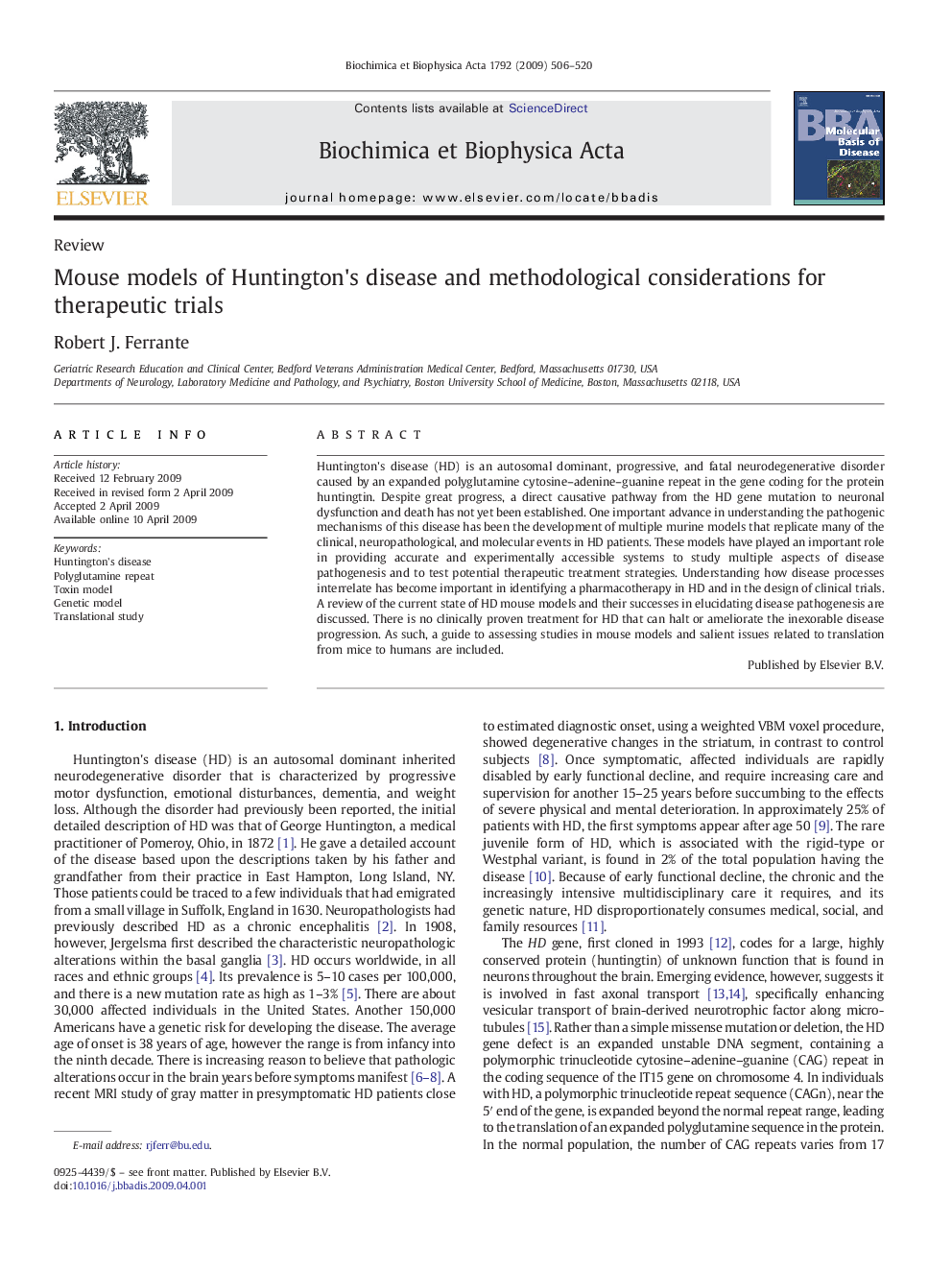| Article ID | Journal | Published Year | Pages | File Type |
|---|---|---|---|---|
| 1905528 | Biochimica et Biophysica Acta (BBA) - Molecular Basis of Disease | 2009 | 15 Pages |
Huntington's disease (HD) is an autosomal dominant, progressive, and fatal neurodegenerative disorder caused by an expanded polyglutamine cytosine–adenine–guanine repeat in the gene coding for the protein huntingtin. Despite great progress, a direct causative pathway from the HD gene mutation to neuronal dysfunction and death has not yet been established. One important advance in understanding the pathogenic mechanisms of this disease has been the development of multiple murine models that replicate many of the clinical, neuropathological, and molecular events in HD patients. These models have played an important role in providing accurate and experimentally accessible systems to study multiple aspects of disease pathogenesis and to test potential therapeutic treatment strategies. Understanding how disease processes interrelate has become important in identifying a pharmacotherapy in HD and in the design of clinical trials. A review of the current state of HD mouse models and their successes in elucidating disease pathogenesis are discussed. There is no clinically proven treatment for HD that can halt or ameliorate the inexorable disease progression. As such, a guide to assessing studies in mouse models and salient issues related to translation from mice to humans are included.
